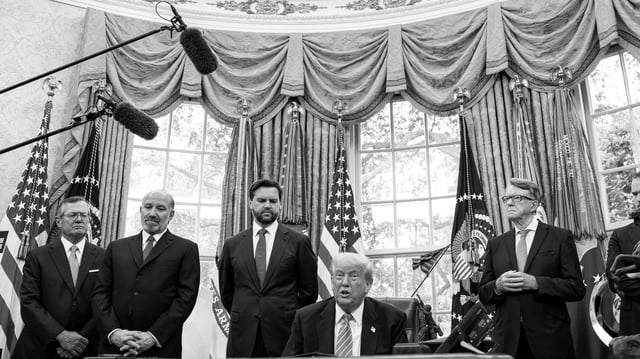Overview
- The U.S.–U.K. Economic Prosperity Deal lowers tariffs on British cars, aluminum, steel, ethanol, beef, and aerospace components, while keeping a 10% tariff on all other imports.
- The agreement creates $5 billion in new export opportunities for U.S. industries, including $700 million in ethanol and $250 million in beef exports to the U.K.
- Critics argue the deal primarily benefits select sectors like agriculture and aerospace while leaving consumers and other industries facing higher costs due to the 10% baseline tariff.
- Key issues such as regulatory barriers on U.S. agricultural products, digital services taxes, and non-tariff trade terms remain unresolved, requiring further negotiations.
- Analysts highlight that the deal marks a step toward easing 'Liberation Day' tariffs but falls short of the comprehensive trade liberalization seen in multilateral agreements like the CPTPP.
